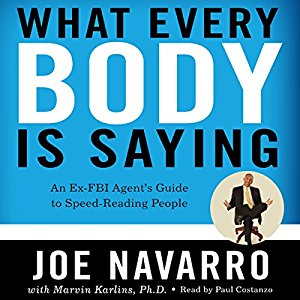"Business books are all the same. A few good ideas and 100 pages of fluff."
If you or a friend reads regularly, you may be plagued by this unfortunate fact of life for many of the most common books for leaders.
Andy Grove, legendary CEO of Intel, even went so far as to write about these books in his management bible, High Output Management. There, he shared the story of how other business book authors would send him their books with kind notes and warm thoughts.
Grove generally found little value in their books, but he appreciated their thoughtfulness. So to avoid cluttering his house with books he didn't want, he ripped out their notes to save them, and threw away the books.
The alternative for the rest of us: Pick the right books
For us mere mortals, we're not getting mailed books for leaders by the latest management experts. Instead, we, or our friends, family, and colleagues, are paying for these books.
This makes choosing the right books critical. Time spent reading a book where the goal is to learn should be a major positive, not feel like a waste of time and money.
I'm here to help.
Over the past 7 years I've read over 180 books. This has come through a simple habit of 20-30 minutes at a time on morning and evening commutes and the occasional weekend down time. Through those years, I've read my share of highly impactful books, and frustrating, long-winded ones.
Today, I'd like to share 5 of my favorite books for leaders that break the mold.
Getting away from the Good to Great and Malcolm Gladwell style theory + handful of anecdotes model of book writing, these books will expand your horizons and teach you multiple actionable concepts that will help you or the fellow leader in your life in big ways.
Best of all, as many are a bit unconventional, you'll find they apply in many areas of your life, not just work.
5 of My Favorite, Awesome & Unconventional Books Leaders like You Should Read
If you're a regular reader of the Lighthouse blog, then some of these books should be familiar. They've had a profound impact on me and how we've built our product, Lighthouse.
Each of these books has core lessons that I've personally applied and gotten great value from. I hope you'll pick up one or two and experience the same.
Awesome & Unconventional Books for Leaders #1: Never Split the Difference by Chris Voss
While the movies may say, "we don't negotiate with terrorists," that's not entirely true. This book is half thrilling stories from a former FBI hostage negotiator, and half incredibly actionable lessons for any kind of negotiation.
If the approaches are good enough for life or death, I'm pretty sure they'll work in your life, too. For me, applying the lessons in this book has helped in a number of negotiations and deals I would not have won before reading it.
As a manager or leader, negotiation is a fact of life for you. You'll negotiate for things in your career. You'll negotiate on projects with your team. Customers will require negotiation, and if you are involved in sales, you'll absolutely need these tactics to win deals. I can confidently tell you, they'll help in all those areas, because they've helped me with them.
What's most interesting to me about this book is how contrarian it is. Never Split the Difference basically destroys conventional wisdom on how to negotiate. As Voss writes, "Being right isn't the key to a successful negotiation; having the right mindset is."
If you or the leader in your life needs to get better at any form of negotiating in their life, this is the book they need to read.
Learn a concept from it on the Lighthouse blog:
- One of the many amazing lessons from this book is to use two specific words more often to better listen to and lead your team.
Awesome & Unconventional Books for Leaders #2: What Every Body is Saying by Joe Navarro
Ever been to a foreign country and not speak the local language? Do you remember how alienating it felt and how much you were missing? Not understanding body language is just as bad, but most of us are used to not understanding it.
Understanding body language is incredibly important in so many parts of your life:
- Hear everyone: Recognizing when someone on your team has something to say, but hasn't gotten the chance to speak up.
- Detect conflict: Seeing clearly when there's issues between people based on body language alone.
- Read situations: Reading when someone is uncomfortable around you. (Recent scandals shows a lot of men could especially use this.)
- Help others in need: Recognizing when someone is uncomfortable around someone else, and would likely appreciate your help getting out of the situation.
- Knowing when to keep probing: Understanding when even if someone gives you an initial "it's okay," you should ask more.
Body language is a critical part of emotional intelligence. If you learn about it, it will then open up so much more in your life. It's your road signs along the way to understanding others.
Especially for managers this is critical when you want to make sure your people all feel heard, fix problems before they blow up, and get better at asking hard questions. This book has lots of pictures and examples, so it's easy to start applying it in exactly those situations.
Just like an FBI hostage negotiator is a great source to learn how to negotiate, they're also pretty good at reading people; after all, it's their jobs. That's why What Every Body is Saying is a great book to read on body language; the author had a lot of skin in the game to learn these skills.
Learn a concept from it on the Lighthouse blog:
- Perform better in your next interview with our questions to ask in your interview to ensure you have a good manager.
- Learn how I've used body language to be a better manager when I was a guest on the Entelo podcast.
Awesome & Unconventional Books for Leaders #3: Win Bigly: Persuasion in a World Where Facts Don't Matter by Scott Adams
Often, when you become a leader, one of the biggest challenges to overcome is understanding that people are not the rational actors you hoped. This is especially difficult for technical individual contributors who become managers.
People are not robots to be commanded. As Dale Carnegie spent an entire book on, you have to win the other person over to your way of thinking, or even let it be their idea. But it goes so much deeper than that.
In many cases, you need to win over groups of people:
- Your team.
- Your organization or department.
- The market and your customers.
Then what do you do? You're going to lose a lot more than you should if you assume the rational argument will win. The truth is, people generally make an emotional decision and then rationalize it. Persuasion is your only hope to influencing that emotional decision.
One of the best examples of how persuasion trumps rationality is the last U.S. Presidential election.
Persuasion at the highest of stakes
Of all the people who tried to explain what happened in the election, Scott Adams makes the most convincing case I've seen by far.
His book Win Bigly, teaches readers the skills of persuasion by looking at actions of both candidates throughout the election. Importantly, it's very neutral on politics. It only looks at the tactics both sides used, and constantly provides "Persuasion Tips" you can use in your life.
As a leader, learning persuasion is a skill that that will help you both inside your company and however you interact with customers and the market. Win Bigly is a great primer on the subject, and best of all has a full appendix to help you go deeper if you're motivated to continue learning.
Learn a concept from it on the Lighthouse blog:
- I just finished this book, so haven't gotten to write about it yet, but will soon. Stay tuned!
Awesome & Unconventional Books for Leaders #4: The Happiness Hypothesis by Jonathan Haidt
How do you motivate people? How do you motivate yourself?
If you've made it far enough in your career to be leading others, you're going to be asking hard questions about what motivates people, including yourself.
It's not an easy answer. Humans have evolved a lot of internal systems that aren't always well suited to the modern world. We're also more animal than machine, which has a variety of consequences:
- We get tired.
- We have limited energy.
- Motivation can waiver based on circumstances.
- What drives one person doesn't always drive someone else.
Understanding this, and knowing what to do about is critical for a leader. The Happiness Hypothesis looks at classic sayings, ancient cultural habits, and modern psychology to understand what underlies our relationships to each other and what motivates us. It's very interesting how often all 3 agree.
Best of all, this book will improve your life in many areas; in addition to motivations in your career, it provides thought-provoking concepts for love, relationships, and religion (whether devout or atheist). After reading it twice, it has significantly expanded my view of the world and my place in it.
Learn a concept from it on the Lighthouse blog:
- Learn how you can use the key concept "The Elephant and the Rider" to better motivate your team here.
Awesome & Unconventional Books for Leaders #5: The 5 Love Languages by Gary Chapman
This is probably not a book you can safely give as a gift to your coworker to avoid having any misunderstandings. However, for your own learning, this is a tremendous book.
Yes, The 5 Love Languages is written for relationships, and most leaders have those, so they'll benefit there. However, you can also apply much of it to work, too. What people appreciate in their personal relationships often applies to their work life, too. Everyone is one whole person, not a split identity.
In this book, Gary Chapman breaks down the 5 primary ways people like to feel loved:
- Words of Affirmation - Praise, feedback, and positive reinforcement.
- Quality Time - Spending time with people they care about and experiencing things with them.
- Receiving Gifts - Thoughtful gifts to show you were thinking of the person. Thought trumps cost to them.
- Acts of Service - Doing things for the other person they'll appreciate.
- Physical Touch - Everything from a warm embrace, to holding hands, to putting your arm around them.
Apply them at work, too.
For a leader or manager, if you understand these, you can apply them in a variety of ways at work:
- Understand what you appreciate most and tell your boss so they can act on it.
- Understand what others appreciate most, and apply it when you want to thank or motivate them.
- Appreciate that they are not always the same, so that you get beyond doing only things you like.
Disclaimer: With all the recent sexual harassment issues, as a leader you should definitely stay away from the physical touch love language. Chapman writes that most people have 2 dominant love languages, so act on one of the others if you want to appreciate them in an appropriate way. Here's a few such ways to do so:
- Words of Affirmation - Be sure to give them more feedback and praise on their work.
- Quality Time - Make sure you keep their 1 on 1s, and give them extra opportunities to have quality time with their family.
- Receiving Gifts - Spend a few dollars on a thoughtful gift for them for something you know they'll appreciate.
- Acts of Service - Do things to help make their work environment better, take a task off their plate they hate, etc.
Being a leader means understanding others, and working to uniquely motivate everyone. Reading The 5 Love Languages will open your mind to key ways that different people on your team will respond to and appreciate most.
Update: Lighthouse reader Kristie Webber let us know that Chapman has co-authored an adapted version for the workplace called The 5 Languages of Appreciation in the Workplace, which she said has helped multiple teams at her company.
Learn a concept from it on the Lighthouse blog:
- Does your team member love thoughtful gifts? Here's a step by step guide to getting them great gifts that cost you less than $10.
- Want to get more creative in how you reward and thank your team? Here's 5 great ways to praise and thank them that are super motivating.









